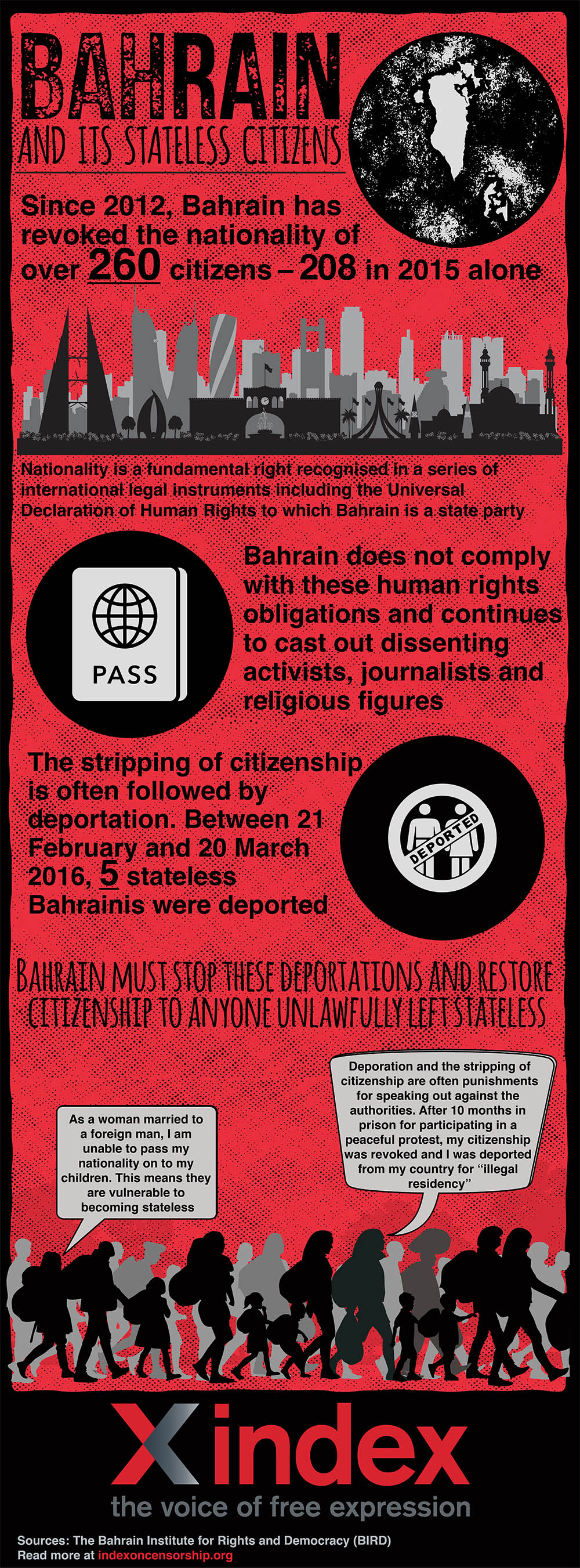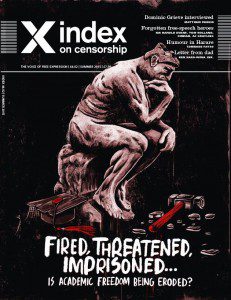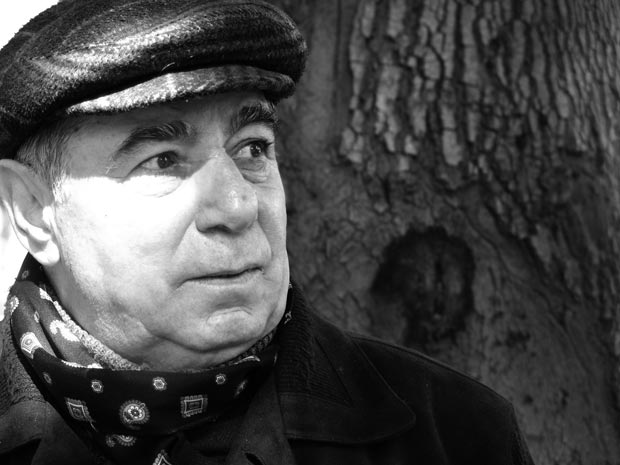29 Apr 2016 | European Union, Events, Mapping Media Freedom
Difference Day is all about celebrating freedom of the press and freedom of expression.
On the second debate of the day, panelists will discuss Mapping Media Freedom, a project run by Index on Censorship, in a debate titled EU Media, Censorship & Propaganda. MMF shows that press freedom is threatened in many places of the world, including Europe.
The debate will look at the art of journalism in Europe. Participants, including Index’s advocacy officer Melody Patry, will then explore cases and their own experiences about how the mass media are censored by governments and corporations. Issues such as self-censorship, hate speech and propaganda – in particular in the current geopolitical context – will be addressed.
Participants:
Moderator: Ton van Lierop
Patry will also take part in a debate on World Wide Worries About Free Reporting.
All over the world news reporting is threatened by violence and abuses of freedom of expression. Panelists in this debate will share insights on why important issues and current events are not covered by the mainstream media. The participants will discuss their own experiences and global perspectives on how to preserve the right to publish.
Participants:
Moderator: Jean-Paul Marthoz
When: World Press Freedom Day, 3 May, 12:30pm
Where: BOZAR – Centre for Fine Arts, Brussels (Map)
Tickets: Free, but registration is required
28 Apr 2016 | Bahrain, Middle East and North Africa, mobile, News and features

When we read about displaced people in the press, we usually hear about Syrian refugees fleeing IS or the one person per second displaced by natural disasters. We are less likely to be made aware of those who have become stateless through forced displacement.
Nationality is something most of us take for granted, but for the 10 million people worldwide who are effectively stateless, the issue is much less trivial.
Bahrain, in particular, has intensified the use of stripping citizenship from those who dissent or speak out in protest as a form of punishment. Since 2012 – when the country’s minister of the interior made 31 political activists stateless, many of whom were living in exile – 260 citizens have fallen victim, 208 in 2015 alone. Eleven juveniles, at least two of which have received life sentences, and 30 students are known to be among them.
Nationality is a fundamental right recognised in a series of international legal instruments, including the Universal Declaration of Human Rights and the International Covenant on Civil and Political Rights to which Bahrain is a signatory. The country repeatedly fails to comply with these obligations.
In 2014, new amendments to the country’s 1963 citizenship law further increased the power of the ministry of the interior and gave judges the authority to make anyone convicted under Bahrain’s anti-terrorism act, which fails to properly define terrorism, stateless.
In the case of Sayed Alwadaei, director of advocacy at the Bahraini Institute for Rights and Democracy (BIRD) and 71 others who were deprived of citizenship in January 2015, their “crimes” included vague terms such as “inciting and advocating regime change” to “defaming brotherly countries”.
Speaking to Index on Censorship, Alwadaei said: “Bahrain is setting up a dangerous precedent. No state has rendered as many of its citizens stateless in 2015. These revocations are politically motivated, and are becoming more common because they got away with it in 2012.”
“I was targeted because of my activism, and Bahrain considers human rights advocates as terrorists,” he added. “As I was not inside the country to face imprisonment, my nationality was the only way they could inflict pain on me. It was used as a tool to cause the maximum damage to stop my human rights work.”
While Alwadaei has not let the authorities take his identity, it does mean he is now stateless. “For my family, it means my infant son can’t have Bahraini citizenship, although his mother is also Bahraini.”
The danger for those made stateless inside Bahrain’s borders is that they do not have access to jobs, schools or health care and their bank accounts are closed, Alwadaei explains. “The people revoked of citizenship are at high risk of deportation by the court; many already have been under charges of ‘illegal residency’.”
These instances are also increasing. Between 21 February and 20 March 2016, five stateless Bahrainis were deported. One of these was Hussain Khairallah, whose citizenship had been revoked since 2012. He had been a union organiser and one of the medics who treated wounded protesters during the Bahrain’s Bloody Thursday in February 2011 when security forces launched a pre-dawn raid to clear a protest camp at Pearl Roundabout in Manama.
Anyone speaking out against the authorities faces such risks.
These practices and threats should immediately cease and all those who have fallen victim should have their citizenship restored. It is their right.
28 Apr 2016 | Academic Freedom, Academic Freedom Reports, Campaigns -- Featured, mobile, News and features, United Kingdom

Academic freedom has been the subject of many debates in recent months. With speakers regularly being no-platformed, and increasing violations of safe space, universities and student unions across the UK have faced harsh criticism.
This growing trend of banning speakers from debates rather than confronting their views head on has led to calls for reforms in university policies in protecting academic freedom and so-called “safe space”.
When human rights activist and ex-Muslim Maryam Namazie was invited by the Atheist, Secularist and Humanist Society (ASH) to speak at Goldsmiths University in December 2015 she faced heckles and interruptions from students who opposed her views.
Throughout Namazie’s talk about blasphemy and apostasy members of Goldsmiths University’s Islamic Society (ISOC) caused a disruption by laughing, shouting out and even switching off her presentation, leading to some students being removed by security.
Namazie spoke to Index about the importance of academic freedom, stating: “Universities have always been hotbeds of dissent and progressive politics. They are places where anything can and should be discussed and debated – where deeply held sensibilities and beliefs can be reviewed, opposed and challenged.
“If you can’t express yourself on a university campus, doing so off-campus is usually even harder. Where academic freedom is restricted, it is a measure of the limits of free speech in society at large.”
Speaking about the Goldsmiths incident, Namazie refuses to be intimidated. She believes those pushing the Islamist narrative want to prevent a counter-narrative on university campuses and therefore it is more important for her to go and speak on any campus she is invited to and to push to be allowed where she is denied access.
“My family fled the Islamic regime of Iran in order to live freer lives. Therefore, it’s especially important for me to speak up, particularly given how many face imprisonment or lose their lives in doing so. I feel I have an added responsibility to speak for those who cannot,” she told Index.
In September 2015 Namazie was invited to speak at Warwick University by the Warwick Atheists, Secularists and Humanists’ Society, but her invitation was withdrawn by the University’s Student Union, who claimed her views would “incite hatred on campus”.
Other activists including Germaine Greer and Julie Bindel have also been silenced on campuses for their controversial views.
Namazie believes no-platforming is having a chilling effect on students’ academic freedom. She told Index: “These policies equate speech with real harm and violence though clearly there is a huge distinction between speech and action. Criticising Islam and Islamism, for example, is not the same as attacking Muslims. Nonetheless, I have been accused of ‘inciting violence’ or ‘inciting discrimination’ against Muslims.”
Human rights activist Peter Tatchell was involved in a dispute in February after National Union of Students’ LGBT representative Fran Cowling, declined to attend an event at the Canterbury Christ Church University at which Tatchell was giving a keynote address and participating on a panel.
He told Index: “Academic freedom is a crucial element of a free and open society. The right to explore, research, articulate, debate and contest ideas — even disagreeable ones — is a democratic hallmark.
“Imposing restrictions is the slippery slope to authoritarianism. As well as diminishing the realm of knowledge and understanding, it reinforces conformism and the status quo; putting a break on dissent and innovation.”
Right2Debate are a student-led movement who are campaigning for an end to censoring and no-platforming in universities by calling for student unions to reform their policies contesting rather than removing divisive and extremist narratives.
The movement, which has 100 student activists across 12 different UK universities and a further 3000 signatures of support, are aiming to have their four-point policy implemented by student unions across the UK. The policy’s outcomes include debate taking place over censorship, uncontested platforms for extremist speakers and transparency in the way the student unions conduct external speaker policy and challenging extremist/divisive narratives.
Haydar Zaki, Quilliam’s Outreach Right2Debate programme coordinator, told Index: “We are in this hostile environment to free speech because of the fruitless terms that have been employed at universities which include safe spaces and duty of care. In reality, these terms are completely open to interpretation, and have led to the chaos we see today whereby speakers are banned (or initially banned) at one university, but then freely allowed in others.
“What student unions and universities need to do is actually start implementing policies that are transparent and uniform — emphasising academic rights and the right to challenge over censorship.”
Bigoted ideas in society need challenging. To do so students require an academic environment that is willing to have open and civil discussions on all types of ideas, including those that could be deemed offensive, believes Benjamin David, an editor at Right2Debate.
Academic freedom is also essential for developing as a society, he told Index: “Academic freedom is important for a variety of reasons, none so pressing than the instrumental value that it has in making advancements in science, law or politics. Such advancements necessitate that the free discussion of opinion is available.”

The summer 2015 issue of Index on Censorship magazine which focuses on academic freedom. Subscribe here to get your copy.
Professor Chris Frost, former head of journalism at Liverpool John Moores University, agrees. Frost believes academic freedom is important for new ideas to be explored. He told Index: “Academic freedom is critical as it allows academics to investigate matters that may be generally considered socially unacceptable simply because there has been no previous investigation. We cannot expand knowledge and understanding if we don’t challenge socially accepted concepts and seek proof to support our theories. Preventing academic research leads to a stifled society and one that will eventually destroy itself through its own limitations.”
Academic freedom is a regular topic for debate for the Index on Censorship Youth Advisory Board, a group of young professionals who meet up for monthly online meetings to discuss current free speech issues. The board spoke to Index about why academic freedom is important to them.
Board member, freelance journalist and race, ethnicity and conflict Masters student, Layli Foroudi, told Index: “Academic freedom is important to me because the purpose of research and study should be to investigate reality, to seek to shed light on some aspect of life, or “truth” — and most importantly, to challenge other people’s truth claims. If there is no academic freedom then there will only be a narrow view of reality that is being purported and left unchallenged.”
Mark Crawford, a postgraduate student specialising in Russian and post-Soviet politics at University College London and current board member, added: “As a historian, it always seemed to me that academic freedom was the closest anyone can really get to ideas breaking down monopolies of power -– hard, scientific investigation can cut through the emotions around nationalism or religion, and afterwards you’re left with truths that however inconvenient are always extremely necessary for new and better narratives to be built.”
This article was updated on 3 May 2016. Corrects to clarify the nature of the dispute over Peter Tatchell’s appearance at Canterbury Christ Church University.
Josie Timms is editorial assistant at Index on Censorship and the first Liverpool John Moores University/Tim Hetherington fellow.
Related:
Why is freedom of speech important?
Worst countries for restrictions on religious freedom
27 Apr 2016 | Azerbaijan, Azerbaijan Letters, News and features

Akram Aylisli
Index reported on 22 April that the case against Azerbaijani writer Akram Aylisli, who previously faced charges of hooliganism after being detained at Baku Haydar Aliyev International Airport on 30 March, has expanded to include charges of resisting the authorities with violence. Under article 315.1 of the criminal code, this is punishable by up to three years in prison.
The move came following an open letter Aylisli sent to Azerbaijani President Ilham Aliyev. In it, he points to the absurdity of the claim that a “78-year-old heart patient, a weak man” could assault a 35-year-old “stocky athlete”. The writer asked the president to intervene and remove the criminal case against him.
Here is the translation of the letter:
President of Azerbaijan Mr. Ilham Aliyev
Dear Mr. President,
The investigation of the “criminal case” against me is about to be finished.
My supposed “crime” is that when I arrived to Baku Heydar Aliyev International Airoport, intending to travel to Venice to take part in literary festival on 30 March-2 April, I supposedly made an act of hooliganism, not captured on any of the video surveillance cameras, and later supposedly assaulted a border service officer, in a room with no surveillance cameras, punching him with such force as to cause bruising.
To convince anyone that a 78 year old, suffering from heart condition, physically weak person can generate such assault physical force against a 35 year old stocky athlete is, most certainly, absolutely impossible and beyond belief. I should most sincerely tell you that, having learned of this absurd accusation in the police department, I absolutely could not believe that it may reach the court of law.
I thought that measures should be taken against such primitive accusations put forward against celebrated writer who was awarded a high order of “independence” for exceptional contribution to Azerbaijan literature. I could not hide from you, Mr. President, that, I expected from you personally, that in this matter your authoritative voice would be heard.
However, unfortunately, my hopes were in vain. Once again I became convinced that top government structures are not interested in me living a tranquil life, continuing my many years of literary work.
It is very difficult for me to understand who would benefit from this unprovoked incident in the airport. However, it is clear that I could not, at all, be the side interested in stirring such an incident.
In the last few years my family had to suffer all kinds of insults and hardship, and I had very strong psychological need for opportunities for peaceful existence in my own country. However, with much regret I must state that the reality is quite opposite, and I have all reasons to believe that the campaign against me and my family, started 3 years ago, is to continue.
In my opinion, Mr. President, there was no need to restart this campaign!
First of all, the reason for that is that my short novel “Stone Dreams”, published several years ago, in the recent times finally left the political context and started to live an appropriate, unbiased literary life. Many well-established publishing houses, not involved in international politics, estimated the book highly just for its artistic and esthetic qualities and decided to publish it. I was very happy that my book is not serving seasonal nationalistic interests, but via its humanistic ideas and high humane values serves the national Azerbaijani literature tradition
I could name globally recognized scientists, artists and politicians who accepted my book as literary work with humanistic and peace-loving perspective.
I often get letters via the internet from ordinary people from many countries. In those unsolicited letters, the literary and esthetic values of the book are emphasized.
For example, I was very touched to read a letter from the 3rd year student of Bratislava University’s Russian and Eastern European Studies faculty, Patrisia Patzelitova, who has written course work and is now writing a bachelor diploma on my long-suffering novel “Stone Dreams”. The author of this letter, who is very far from any kind of political intrigue, who sees no difference between ordinary Armenians and ordinary Azerbaijanis, tries to evaluate the artistic ideas of “Stone Dreams” most objectively.
In my opinion, it would be wrong to speculate that my nomination for Nobel Prize by 13 respected professors from different countries is in any way an Armenia-related initiative. None of those intellectuals are political actors interested in temporary, short-term political intrigue. I was long sure that while we ignore the opinion of the world, the world will also not listen to us.
I could provide many examples of sympathy towards my work from unbiased people that should change the attitude of Azerbaijan’s government towards me. However, unfortunately, it has not changed.
The government, in line with historic precedence, wanted to prove that it could never be wrong. However, I always thought that the government may also be wrong and may try to cover that behind the curtain of pseudo “people’s fury”.
There is nothing strange about this. The history knows that, from time to time, there is misunderstanding between politicians and artists, and those misunderstandings are not without their own reasons.
If the government policy was indeed impeccable, it could not so happen that a short artistic novel, however wrong and harmful it could be, would cause such a disturbance to the state’s ideological life.
Alongside with the need for economic reforms, the need for serious reforms in country’s ideological and political life is as urgent as ever, Mr. President!
It is not hard for me to understand that this work, which caused me much insult and hardship, created certain problems for the current Azerbaijan’s governing ideology. But I could not possibly agree that this work, in any way, discredits Azerbaijani people. In my opinion, the protagonists of the book: Saday Sadagli, Dr. Abbasov and Dr. Farzani are the bearers of high moral standards, who feel compassion towards all people, regardless of their national and religious identity. These are bright members of Azerbaijani people, its intelligencia. Those characters could not possible denigrate the people of Azerbaijan.
I’m 79 years old now, and my days are numbered: not by years, probably by months and days. Now, certainly, I worry more not about my own destiny, but destiny of my family, the plight of my sons who remain unemployed for my supposed “sins”. It would be naïve of me to expect that someone would show mercy and offer jobs to my children in the country of wolfish officials, who nod to every command from the top and differ from robots only by their endless greed and passion for bribes. That these stresses and hardship happened just because of a literary work seems a nightmare to me.
The last three years I live in the environment of psychological terror, and I daily witness the cruel violation of my basic human rights.
Even the doors of my country house are totally locked on me. It is not that I’m worried of disrespect from my countrymen: it is meaningless to be afraid of that, as I’m certain that the attitude of ordinary people towards me has not changed. Those doors are locked because in my small homeland, on each step I’m worried about possible ordered provocations.
As you probably know, “Stone Dreams” is not the first of my works published overseas. This book is a logical continuation of my body of work, and it’s not my fault that “Stone Dreams” only differ from my previous work in its theme. Also it’s not my fault that in other countries the book is judged by different criteria than in Azerbaijan.
It is not by accident that the publishing house that published “Stone Dreams” last year, also became interested in publishing my 1960s trilogy “People and Trees”. The book of my selected works, published in St. Petersburg, Russia in 2014, is also planned for publication in the United States. It should not escape attention that “Stone Dreams” is evaluated in many counties as masterly artful prose.
Mr. President, I have never been the trouble-maker who likes to create public scandals. Neither am I a culprit of such wide coverage of the airport “incident” in the international media.
My emotional address to you comes from my hope and belief that your word will have a decisive role in finding out the truth, establishing and punishing the real culprits of the said incident.
Sincerely,
Akram Aylisli
Related:
Azerbaijan: Akram Aylisli faces further charges after sending letter to president
Azeri writer Akram Aylisli releases speech he was due to give at Italian festival
Azerbaijan: Persecuted writer Akram Aylisli faces charges of “hooliganism”




